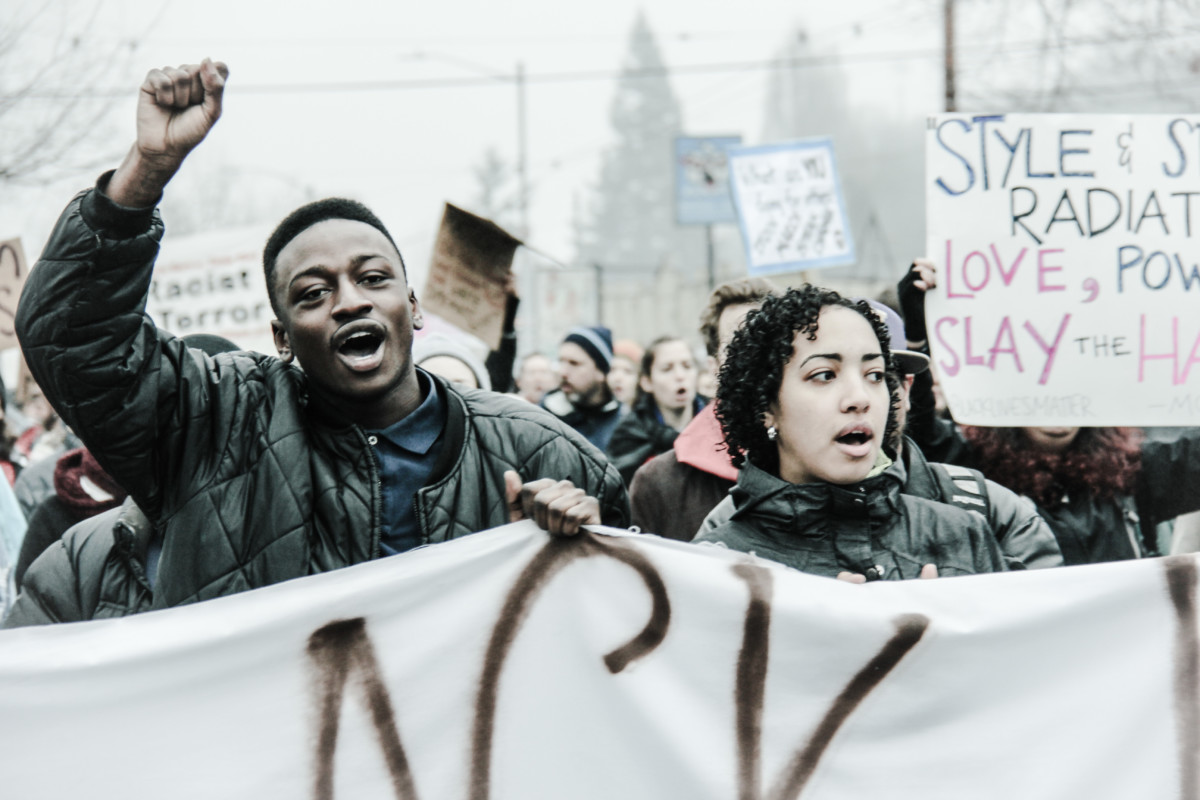Part of the Series
Progressive Picks
Did you know that Truthout is a nonprofit and independently funded by readers like you? If you value what we do, please support our work with a donation.
Blackness is the anti-state just as the state is anti-Black. The oppression of Black people ought not to inspire the modification of this existing state or the aspiration to create a purportedly better state. Somehow during the formation of the US settler project, anti-Black violence became a nod to the supposed beauty of the empire. Since the death of Crispus Attucks, the first person killed in the Boston Massacre (and thus the first martyr of the American Revolution), Black sacrifice for the nation has been turned into a weapon against us for the benefit of the state. As opposed to recognizing Black Americans as a group of people upon whose suffering the state is constructed, we too often understand the acquisition of Black rights and the eventual inclusion (assimilation) of Black people into the social contract as a reason to continue our fight within state apparatuses. The myth of the arc of social progress flies in the face of the reality that our rights are being actively rolled back and continuously denied. Understanding the anarchistic condition of blackness and the impossibility of its assimilation into the US social contract, however, could be empowering. It is not up to us to castigate anyone who is or isn’t empowered by our particular set of worldviews. We do not label anyone’s philosophy right or wrong unless it reproduces or perpetuates existing oppressions. We simply hope to observe and analyze and express our concerns, rooted in the desire to achieve liberation for all Black people around the world.
As the authors of this book, we represent different aspects of blackness in this country, one of us as a descendant of enslaved Africans and the other as a child of Zimbabwean immigrants. We came together in the hopes of fulfilling something much bigger than ourselves, to offer a framework for understanding the Black condition in the United States and to challenge an increasingly standardized reaction to oppression. This imperfect yet heartfelt undertaking was intimidating, given all that we know needs to be accomplished and how much we don’t know about how to define completion, an arrival at the destination where we wish to go. It is possible that a people’s liberation is a perpetual project and must consistently be renewed and updated. Embracing Nina Simone’s definition of freedom as the absence of fear, we strive to overcome our own fears to offer our understanding of structural violence, ways of subverting these systems, and ways to imagine new ones.
For many people, the difficult and enduring questions about racial capitalism and white supremacy can be overwhelming. People may ask for answers as though there are distinct formulas for overcoming each form of systemic oppression. The truth is almost reductively simple. The solution to capitalism is anticapitalism. The solution to white supremacy is the active rejection of it and the dual affirmation of Indigenous sovereignty and Black humanity. We must reject the violent machinations of the settler state (e.g., mass incarceration, treaty violations, transmisogyny, and so on). Any solution to the centuries of injustices and brutality waged against us requires a long struggle, and a crucial part of that struggle is precision in identifying our position as oppressed people and the structures that produce and maintain anti-blackness. Political education that thoroughly indicts racial capitalism and its supporting systems slowly increases consensus around our oppression. With this the chances increase for effective diverse actions necessary for liberation.
Removing oppression, not reforming it, demands the creation and radicalization of new dissidents. It is an exercise in imagining new communities. Our identities will be reflected in our willingness to nurture and channel the angst, anger, dissatisfaction, and resentment felt by Black people toward institutions of injustice. Channeling collective racial trauma into world-imagining energy and analysis is one of the ways we express care for our fellow Black people and our desire to improve their conditions. Nonparticipation in the systems that harm us is not a choice for many of us, but we can learn to undermine them when opportunities present themselves. Meaningful steps toward liberation do not have to be dramatic. Steve Biko’s assertion that “the most potent weapon of the oppressor is the mind of the oppressed” encourages us to create new ways of understanding oppression so that we may effectively challenge it and re-create ourselves at every opportunity.
The ability to thrive as people is something beautiful, and we cannot allow ourselves to be disposed by being misused in this stale US project of empire. Instead, we should be radically defining what will bring about our freedom from our unacceptable conditions. Until then rebellion will continually bring us closer to where we should rightfully be. When the work of our struggle settles beyond the turbulent waves of our current predicament, what lies in our depths can grow as a foundation to create a world free of oppressive violence, fear, and perpetual disruption.
Press freedom is under attack
As Trump cracks down on political speech, independent media is increasingly necessary.
Truthout produces reporting you won’t see in the mainstream: journalism from the frontlines of global conflict, interviews with grassroots movement leaders, high-quality legal analysis and more.
Our work is possible thanks to reader support. Help Truthout catalyze change and social justice — make a tax-deductible monthly or one-time donation today.
